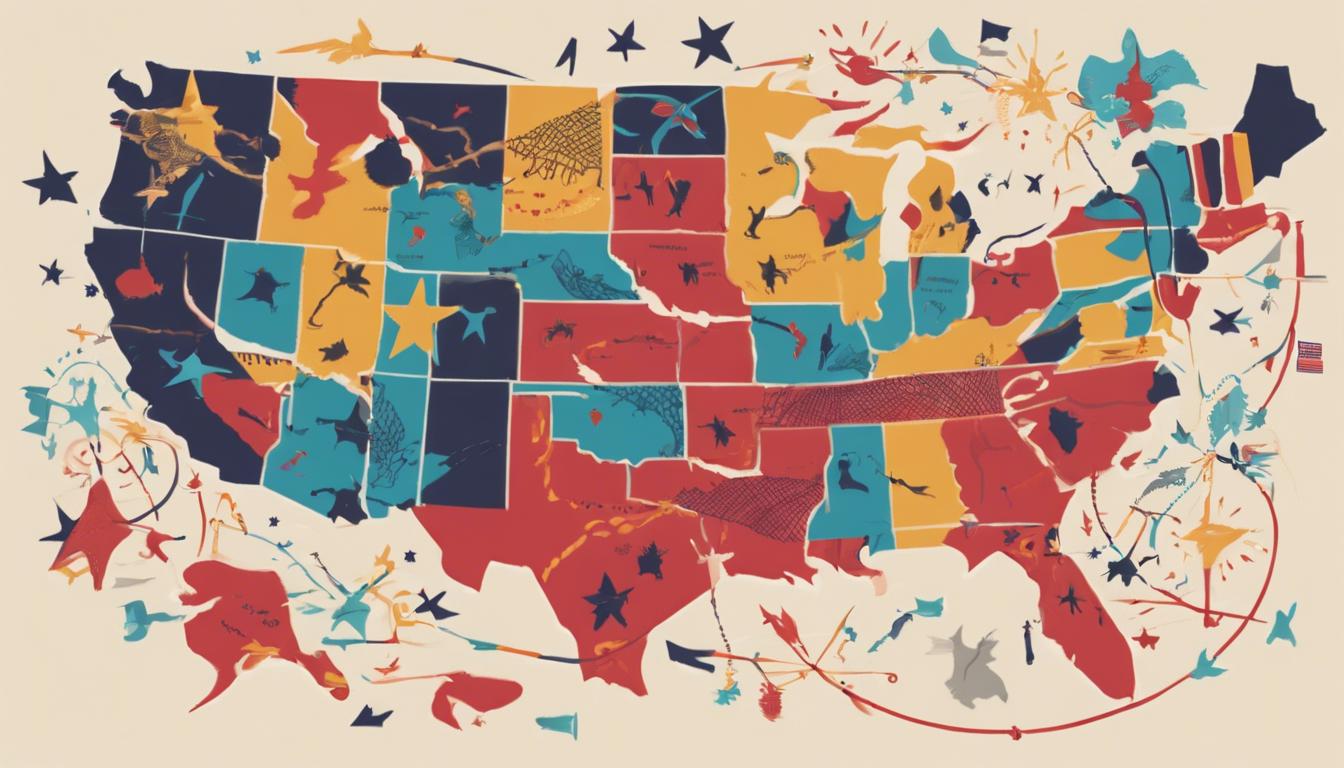Various Republican-led states are enacting stricter immigration policies, leading to a clash with the Biden administration over federal authority and concerns about disrupting immigration law and international relations.
As Republican-led states in the United States push for stricter immigration policies, Texas momentarily enforced a controversial law before it was blocked by an appeals court. The law, known as SB4, would have given Texas authorities extensive powers to arrest individuals suspected of illegally crossing the US-Mexico border. This move by Texas prompted reactions across several states, with Iowa passing a similar bill and New Hampshire nearing the approval of legislation targeting individuals suspected of entering the U.S. illegally from Canada.
Georgia’s Republicans have called for the enforcement of immigration-related agreements in jails after a recent tragic incident, and Tennessee is close to requiring law enforcement to report individuals in the country illegally to federal immigration authorities. These state measures have sparked conflict with the Biden administration, which argues they overstep federal authority and could disrupt immigration law and international relations.
Another significant decision by an appeals court halted the enforcement of Texas’ SB4. The Supreme Court had allowed the law to take effect before transferring the case to the appeals court, which had not ruled on the law’s constitutionality. The White House criticized the initial Supreme Court ruling, citing concerns over community safety and potential chaos along the southern border.
In unrelated news, concerns have been raised by a delegation of American and British doctors about the Israeli military’s reported targeting of healthcare facilities in Gaza, accusing it of destroying the local health infrastructure.
Additionally, Georgia is addressing the challenge posed by AI deepfakes in political campaigns with proposed legislation. The bill, strongly supported out of committee, aims to criminalize the use of AI to create deceptive content that could influence election outcomes. While proponents see it as a necessity for the integrity of political discourse, critics argue it could infringe on free speech rights. This proactive step by Georgia highlights the broader debate over the regulation of AI technology to prevent misinformation.













